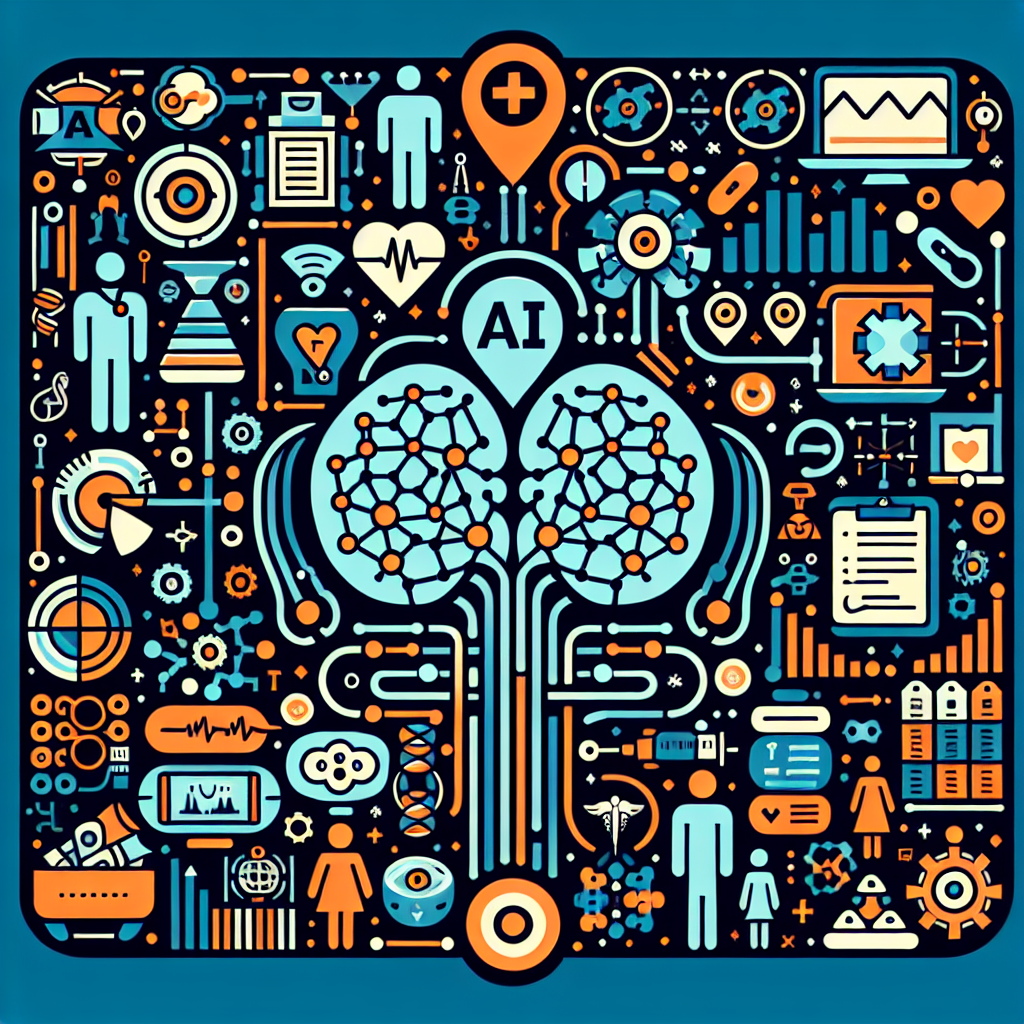Artificial intelligence (AI) has been making waves in the healthcare industry, revolutionizing the way healthcare providers manage population health. Population health management involves the proactive management of the health of a defined population, with the goal of improving health outcomes and reducing healthcare costs. AI has the potential to greatly enhance population health management by analyzing vast amounts of data to identify patterns and trends, predict outcomes, and personalize care for individuals.
AI applications in population health management
AI has a wide range of applications in population health management, including:
1. Predictive analytics: AI algorithms can analyze large sets of data to predict future health outcomes for individuals or populations. This can help healthcare providers identify individuals who are at risk for certain health conditions and intervene before the condition progresses.
2. Personalized care: AI can help healthcare providers deliver personalized care plans tailored to the needs of individuals. By analyzing a person’s health data, AI can recommend specific interventions or treatments that are likely to be most effective for that individual.
3. Remote monitoring: AI-powered devices can monitor patients remotely, collecting data on vital signs, medication adherence, and other health indicators. This allows healthcare providers to track patients’ health in real-time and intervene when necessary.
4. Fraud detection: AI can help healthcare organizations identify fraudulent claims and activities, saving them time and money.
5. Population health analytics: AI can analyze population health data to identify trends and patterns that can inform public health policies and interventions.
Benefits of AI in population health management
The use of AI in population health management offers several benefits, including:
1. Improved outcomes: By analyzing data and predicting outcomes, AI can help healthcare providers intervene early and prevent adverse health events.
2. Cost savings: AI can help healthcare organizations identify cost-effective interventions and reduce unnecessary healthcare spending.
3. Personalized care: AI can help healthcare providers deliver care plans tailored to the needs of individuals, leading to better health outcomes.
4. Efficient resource allocation: AI can help healthcare organizations allocate resources more efficiently by identifying areas of need and directing resources where they are most needed.
5. Enhanced patient engagement: AI-powered tools can help patients take a more active role in managing their health by providing personalized recommendations and feedback.
FAQs about AI and population health management
Q: What is population health management?
A: Population health management involves the proactive management of the health of a defined population, with the goal of improving health outcomes and reducing healthcare costs.
Q: How can AI help with population health management?
A: AI can help healthcare providers analyze vast amounts of data to identify patterns and trends, predict outcomes, and personalize care for individuals.
Q: What are some examples of AI applications in population health management?
A: Some examples of AI applications in population health management include predictive analytics, personalized care, remote monitoring, fraud detection, and population health analytics.
Q: What are the benefits of using AI in population health management?
A: The benefits of using AI in population health management include improved outcomes, cost savings, personalized care, efficient resource allocation, and enhanced patient engagement.
Q: How can healthcare organizations implement AI in population health management?
A: Healthcare organizations can implement AI in population health management by investing in AI-powered tools and technologies, training staff on how to use AI effectively, and partnering with AI experts and vendors.
In conclusion, AI has the potential to greatly enhance population health management by analyzing data, predicting outcomes, and personalizing care for individuals. Healthcare organizations that embrace AI in their population health management strategies stand to benefit from improved outcomes, cost savings, and enhanced patient engagement. By leveraging the power of AI, healthcare providers can take proactive steps to improve the health of populations and reduce healthcare costs in the long run.

